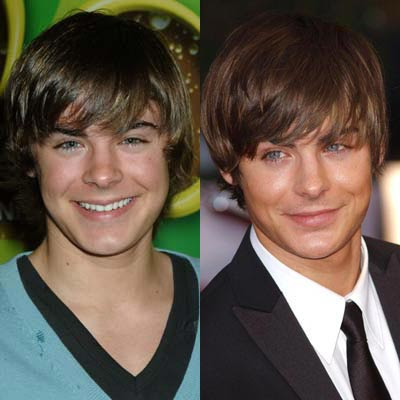


Why did cosmetic surgery become centered around women?
The surge in the accessibility to mass media and advertising has made an impact on the refocusing of cosmetic surgery towards women. The issue of cosmetic surgery to fix a particular flaw and contend with the nagging self doubt seems more mainstream than in early cosmetic history of finding content in natural selection. The change that has greatly impacted female’s self perceptions is that of insecurity or self-identity and the availability to “fix” a flaw and in doing so fixing self-insecurity and boosting one’s self identity. I believe women in today’s society have polar role-models with whom they make constant unconscious or conscious comparisons to, and the choice of comparing causes the degradation or in some cases boosting of one’s self-esteem. I believe it can be explained that women throughout history for the most part have been more concerned with appearance—than men—and this generational fight has now been cured with the ability to “nip/tuck.” Cosmetic surgery is a quick and easy fix of the beginning to solving personal issues.
What are your thoughts on cosmetic surgery?
I think cosmetic surgery is fascinating medical field and like any profession has positives and negatives. Cosmetic surgery is so helpful in the rehabilitation of individuals who have experienced great physical disfiguring trauma. The field is also helpful to those who have mental and perception trauma in their body image. I am not against individuals—male and female—opting to pay to alter their bodies; however, I do believe there needs to be a screening process as Debra Gimlin discusses in her essay. I think it is important for cosmetic surgeons to evaluate patients physically and mentally and coach patients whether they are ready or not for the particular procedure. I think ill counseling efforts can cause the addictive tendency to cosmetic surgery because the seriousness of the procedure was not thoroughly explained.
Do you feel it is something people take too lightly?
Yes. Like I mentioned in the previous response, I believe there is not sufficient patient education on the affects of post-cosmetic surgery. The choice to undergo such a procedure should include months of mental and physical preparation and periodic evaluations by the physiclan before full approval to do the procedure. I think if more plastic surgeons carried out their practice like so, then there would be less accidents and addictions to cosmetic procedures.
Is it an expression of a vain and shallow culture or is it something positive people can do to improve their looks and self-image? Or does it depend upon the context?
I believe it can be all of these depending upon the context. I think if someone wants cosmetic surgery so bad then they are going to find someone to do the procedure regardless of the dangers and social implications. However, I do believe surgery can be an enhancement to someone who is aging, young, and even a victim of life accidents.
I know three individuals who underwent cosmetic surgery: two for sole cosmetic purposes and one for health reasons. I had a 23 year old friend who had naturally unhealthy large sized breast that were causing back pain and full body strain. She underwent a breast reduction so that her breast would be proportionate to her body and save her further medical complications later in life. She now feels better because she does not have to worry about how her breast may offend people in public, and how she can wear clothing that fits instead of clothing that just fits her breasts. The other cases are one of a 56 year old practicing physician who had the genetic inclination to baggy eyes and inelastic aged facial skin. She underwent a procedure to reintroduce elasticity to her face and to reduce her puffy eyes. Everyone agrees that she does look remarkably better and she too does not regret the procedure because she feels she finally looks her age and not older. I also had another friend who had breast augmentation to make her breast larger. I was almost embarrassed that someone my age would want larger breast. You see I consider my breast normal in size and love the fact that they are not large or busty because I can wear clothing that is low (which is comfy) and not worry about cleavage or bustyness showing. However, when I asked her why she wanted to have bigger breasts she told me that most people don’t know that she has no chest because she has always only been able to wear adolescent training push-up bras. Instantly I knew what she meant and sympathized with her issue with her body image. I also asked her if she ever considered waiting several years until she had children and see if then she may develop child-bearing breasts. She said it’s something she thought about, but whose to say that children are in her near future and why would I wait to have breasts and still be insecure until years from now. It was a powerful explanation and moment with an in person situation of body image and societal influence. I discontinued my rant of twenty questions and encouraged her that her new breasts would look great and that she would be alright. I met up with her after her procedure--noticed that like my other friend who had breast reduction--her new breast now fit her body and created a more well-rounded look for her. In these cases I would not choose to undergo cosmetic surgery but it is a personal decision that needs to be dealt with in a serious matter.



